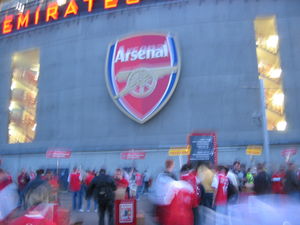中國將告別「保八」
| 中國將告別「保八」 | 2010年10月25日 |
【明報專訊】中國政府一直面對一個無法迴避的抉擇──到底是要保持他們有特別感情的8%經濟增長目標,還是進行深層的結構性改革(財政、金融、擴大內需),以保持中長期的經濟健康增長呢?
北京不願從金融海嘯時定下的8%經濟增長底線後撤,會漸損害其進行結構改革的努力,效果就如形成一個「溫家寶保底對策」(Wen Jiabao put)——這就像當年「格林斯潘保底對策」(Greenspan Put)(在本世紀初,為了挽救美國經濟,格林斯潘不斷降息保經濟增長,結果造成美國樓市泡沫)。換言之,不成文地保證經濟增長必定超過8%,就是所謂「溫家寶保底對策」。
每當經濟增長率跌破某個水平,中國政府就會放寬所有不受歡迎的措施(如壓抑樓市、節能減排目標、環保條例等),這等於破壞了自己推行改革的能力,並鼓勵過度投資。投資者知道,他們永遠都可以指望,中國會有高的經濟增長,其投資必然會有豐厚的回報。
十七大五中後加息 信號清晰
上周北京傳出的信息是,「溫家寶保底對策」已不復存在。雖然上星期一閉幕、負責審議「十二五」規劃的「中共中央十七屆五中全會」的公報字眼仍是預期之中地浮誇,但內地報章對「十二五」規劃的報道很清楚——經濟增長率的重要性已被淡化了,反而強調調整結構的重要性。
上周二人民銀行突然加息,其即時目的是要令樓市和股市的泡沫泄氣,以及壓抑惱人的食品價格上漲。但在黨大會之後即時加息,無可避免地會被視為一種政策信號,它更明顯要傳達的信息是,中國政府現在更重視調整經濟結構;而且,若有需要的話,它寧願讓經濟增長明顯放緩。
現在政策的基本方向已清晰,但執行將會是漸進的。我們預期,未來兩年中國的經濟增長只會出現少許放緩,而非大幅下跌。我們承認,這個大膽的推論是以拼湊環境證據得來的——北京並沒有大鑼大鼓地說,要對中國的經濟結構進行大幅改造。但是,我們對自己的看法很有信心,因為所有環境證據都差不多指向同一個方向:
1. 在「中共中央十七屆五中全會」的公報中,「經濟增長」這個字眼只提及了兩次,但「經濟發展」這個字眼卻出現了13次之多。後者的意義更廣泛,明顯暗示注重經濟增長的質素和結構,多於數字。通常,公報的第一段都是列出政府施政的最優先項目。而這次第一段就說明,要「加快轉變經濟發展方式,保持經濟平穩較快發展」。這是一個微妙但清晰的信號,經濟增長的數字已經不及經濟增長的結構來得重要。
2. 公報亦提及,要「加快形成消費、投資、出口協調拉動經濟增長新局面」,要提高勞工收入和家庭收入在GDP中的比重。這是令人鼓舞的,因為提高勞工和家庭收入,正是提高消費在經濟增長中的比重的關鍵。
3. 《21世紀經濟報導》在一篇談及未來5年的貿易政策的詳細報道中指出,中國政府預期,將來每年的出口增長會放緩至9%至10%(在2003年至2008年的高峰期,每年的出口增長接近30%)。此外,政策的重點會由盡量擴大出口增長,轉移至控制貿易盈餘,部分是透過減少加工貿易達成。
這是與中國人民銀行副行長兼國家外匯管理局局長易綱10月7日在國際貨幣組織(IMF)年會發表的聲明一致的。當時,易綱表示,中國的目標是在未來3至5年,將它的經常帳盈餘,減少至相當於GDP的4%以下(現時是5.5%)。基金
重改革多於增長 高層已達共識
4. 在10月18日,中國發表了《國務院關於加快培育和發展戰略性新興產業的決定》,提出要加快培育和發展七個戰略性新興產業。至2015年,戰略性新興產業增加值佔國內生產總值(GDP)的比重力爭達到大約8%;至2020年,力爭達到大約15%。被確定為國民經濟先導產業和支柱產業的七大新興產業分別是:節能環保、新一代信息技術、生物、高端裝備製造、新能源、新材料和新能源汽車。至於以往在同類文件中被形容為支柱產業的房地產和汽車業,這次卻不在支柱產業和新興產業的名單內(除了新能源汽車)。
5. 國家能源局表示,未來兩個五年計劃的單位國內生產總值(GDP)能耗削減目標,分別是減少17.3%和減少16%。這些目標明顯高於之前討論過的最低目標,將需要重要政策配合(包括更有效的能源定價),才能達到。國家發展和改革委員會的能源研究員仍在爭論要將目標定得更高。因此,當明年3月「十二五」計劃的大綱公布時,這些目標還有可能被提高。
6. 人行在十七大五中全會閉幕之後即時宣布加息。這幾乎可以肯定是為了回應近期的數據顯示樓價重新上升,以及消費物價指數(CPI)持續上升的壓力。加息的時間清楚暗示,黨內贊成在未來1年逐步收緊貨幣政策,同時願意接受較低的經濟增長率,作為預防通脹和資產泡沫的代價。
總括來說,上星期的新聞顯示,中國政府內部最終達成了一致的共識,經濟增長速度需要放慢,資金和其他投入成本需要提高,貿易盈餘需要受控,家庭收入則需要提高。
但是,過去幾日,當我們向客戶提及這些論點時,他們的反應通常都是說,這是老調重彈。既然以前實際執行都不達標,為什麼這次我們要相信會達標?答案是,在中國,有效的政策需要由最高層發出清晰的信息。除非這些信息十分清晰,否則,落實到地方的政策不會有效。
影子總理政策手影漸現
在過去1年,以上的信息大部分都不清晰。在2008年9月金融海嘯爆發後的1年內,北京的信息很響亮和清楚,那就是要「保八」(確保經濟增長率至少達到8%),好像Memorex以前的8倍速燒錄DVD-R光碟片的廣告那樣。
至於今年的大部分時間,中國政府一方面不斷談論要改革經濟結構,但另一方面又沒有糾正政府仍不會讓經濟低於8%的想法。市場(特別是房地產市場)因而繼續相信政府真正的政策仍然是「溫家寶保底對策」。
過去一星期的新聞,特別是精心部署時間的加息,發出了明確的信息——「溫家寶保底對策」已經結束,兼且顯著地加強影子總理李克強的地位。今年初以來,李克強一直主張對樓市進行更嚴格的限制,以及進行更進取的經濟改革。
隨着信息清晰了,具體的政策和計劃將會開始推出,儘管中國可能會在短期內須接受較慢的經濟增長。這對全世界是重大消息。
Pierre Gave
GaveKal亞洲區研究部主管
It has long been the case that Chinese policy makers face a stark choice between their cherished 8% growth target and the deep structural reforms (fiscal, financial and domestic market) that are required to ensure healthy growth in the medium to long term. Beijing's refusal to back away from the 8% GDP growth floor that it set during the global financial crisis undermined all efforts at structural reform, and amounted to a "Wen Jiabao put"-the equivalent of the infamous "Greenspan put" in the early 2000s which inflated the US housing bubble. In other words, the implicit guarantee that growth will always exceed 8% is the 'Wen Jiabao put.' By ensuring that all unpleasant measures (property restrictions, energy efficiency targets, environmental rules) will be relaxed the instant growth crosses an arbitrary level, the government destroys its ability to enforce reforms, and encourages over-investment because investors 'know' they can always count on high GDP growth to deliver them a fat return." On Tuesday, the signal came from Beijing that the put is off. The communiqué from the weekend's annual Party meeting, which reviewed the draft of the next five-year plan, was predictably turgid, but local press reports on various aspects of the plan made quite clear that the economic growth rate is being downplayed, and structural issues emphasized. The day ended with a surprise interest-rate hike, whose immediate intent is to start squeezing the air out of incipient bubbles in the property and stock markets, and head off pesky food-price inflation. But the broader message of the rate hike-which will inevitably be seen in China as a signal of policy intent, since it came immediately after a big Party meeting-is that the government is now intent on its structural agenda, and is willing to let growth slow substantially. If need be. The basic direction of policy is now clear, but implementation will be gradual and we expect a slow deceleration of growth over the next two years rather than a severe plunge.
We freely admit basing our rather bold call on a collage of circumstantial evidence: Beijing has issued no clarion call for the fundamental transformation of China's economic structure. But we are confident of our view because all the circumstantial evidence is now pointing in pretty much the same direction. Consider the following:
* In the Party communiqué, "economic growth" was mentioned two times but "economic development"-a broader term clearly implying a focus on the structure and quality of growth more than the level-was mentioned 13 times. The opening paragraph, which sets out the government's top priorities, presents the aims to "accelerate the transformation of the economic growth mode, maintain stable and rapid economic development." (Emphasis added.) This is a subtle but clear signal that the level of growth matters less than the structure.
* The communiqué also makes prominent reference to a "new growth pattern that is jointly driven by consumption, investment and exports," and targets an increase in labor income and household income as a share of GDP. This is encouraging, as raising labor and household income is the key to increasing consumption's share of economic growth.
* A detailed report in the reputable 21st Century Business Herald on trade policy in the next five year plan shows that policy makers anticipate a fall in annual export growth to 9-10% (from nearly 30% in the 2003-08 boom), and that the emphasis of policy will shift from maximizing export growth to constraining the trade surplus, partly by reducing the role of the assembly and processing trade and its huge built-in surplus. This is consistent with statements by deputy PBC governor and head of the State Administration of Foreign Exchange Yi Gang at the annual IMF meetings on October 7 that China aims to reduce its current account surplus to under 4% of GDP (from 5.5% now) over the next 3-5 years.
* On October 18 the State Council issued a new industrial policy strategy. The "pillar" and "leading" industries include information technology, environmental and energy efficiency technology, renewable energy and the like. Real estate, a pillar industry in previous such documents, was d ropped from the list, as was the auto industry.
* The National Energy Administration has indicated that the energy intensity reduction target for the next two five-year plans will be -17.3% and -16% respectively. These targets are significantly above the lowest that have been under discussion and will require significant policies, including more effective energy pricing, in order to be met. Energy researchers within the National Development and Reform Commission (NDRC) are still arguing for higher targets and it remains possible that the targets will be increased when the outline five year plan document is released in March.
* Finally, the PBC announced a surprise interest rate hike immediately after the close of the Party meetings. The hike is almost certainly a response to recent data showing a renewed acceleration of property prices, and continued upward pressure in the consumer price index. But the timing of the move clearly implies that the Party has endorsed a gradual tightening of monetary policy over the next year, and is willing to accept a lower growth rate as the price of forestalling inflation and asset bubbles.
Taken together, the news flow of the last week indicates that policy makers have finally achieved a broad consensus that growth needs to slow, the cost of capital and other factor inputs needs to rise, the trade surplus needs to be brought under control, and household incomes need to be pushed higher. But as we have proposed this thesis to clients and contacts over the past few days, the usual response has been that we have heard this same old song before. Why should we believe that implementation will match the rhetoric, when it has not in the past?
The answer is that in China, effective policy starts with clear signaling from the top. Until the signals are clear, no ground-level policy can be effective. And over the past year, the signals have been most unclear. In the year following the September 2008 global financial crisis, the signal from Beijing was loud and clear, like voice on the old Memorex advertisements that shattered crystal: "Bao ba"- "protect eight (percent GDP growth)". For most of this year, the government increasingly jawed about structural reform while doing nothing to discourage the impression that it was terrified of any GDP growth rate below 8%. In other words, its real policy, from which the markets (notably the property market) took their cues was the Wen Jiabao put.
The news of the last week-and most especially the carefully timed interest rate hike-sends a clear signal that the put is off, and notably strengthens the position of shadow premier Li Keqiang, who is known to have advocated much more stringent property controls and much more aggressive structural reform since early this year. With the signal clear, specific policies and programs should begin to flow. And this is tremendous news for the entire world, even if China may have to endure a short-term weakening in its economic growth rate.





